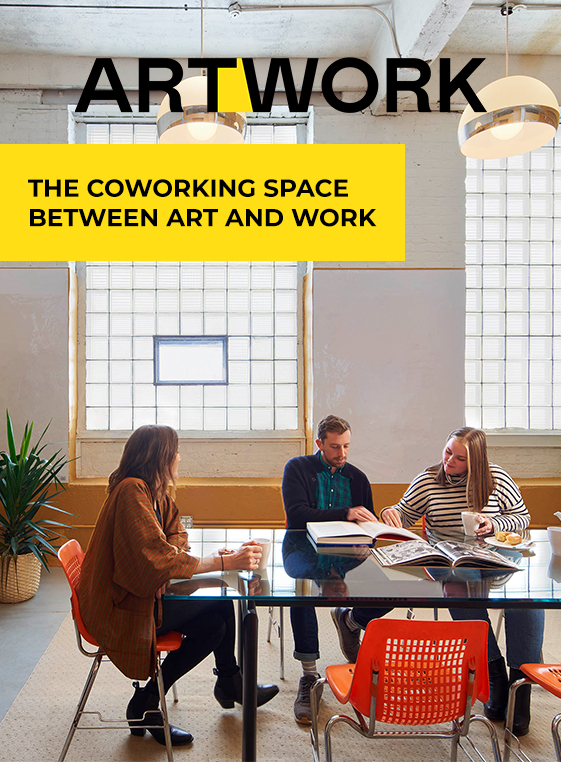After years of working as an industry strategist and innovator with top companies around the county and globe, East New York native Dasheeda Dawson has returned home to fill a vital role: guiding New York City’s fledgling cannabis industry and impending small-business boom into an era of equity and prosperity within the largest extant cannabis market in the nation.
In NYC, where the unregulated market for cannabis currently amounts to around $4 billion, and the legal market for cannabis is expected to hit $1.3 billion in 2023, Dawson’s new gig as founding director of Cannabis NYC and cannabis liaison to NYC’s Small Business Services (SBS) will require fostering a kind of coexistence between extant and incoming markets that “hasn’t really been fathomed before,” she says.
As opening day nears for New York’s first official adult-use ‘recreational’ dispensaries (i.e. ones with retail licenses, as opposed to legacy unregulated operators, or various grey-market proprietors who’ve already set up shop), Dawson provided Forbes with a quick Q&A on her priorities, experience, and long-standing promises to the cannabis community that she very definitely intends to keep.
This interview has been lightly edited for clarity and length.
Janet Burns, Forbes: What should readers know about Cannabis NYC and the work you’ll be doing in your new role as 2022 rolls into 2023?
Dasheeda Dawson: I’ll start by saying that, generally speaking, Cannabis NYC is really the result of Mayor [Eric] Adams’ day-one focus on equity as a primary focus of his administration. The initiative is really allowing us to soft launch and test drive the SBS programs and services that are going to be further curated and specialized for the cannabis industry. As founding director, I’m coming in with a very, very broad vision.
I believe — and I’ve always believed, and a lot of people believe, as we talk about how large the unregulated previously existing legacy market is in New York City — that this is the largest market of consumers in the world, and definitely so in this country. So, I’m really focused on ensuring that we turn that into becoming a number-one global hub for excellence in this industry around education and equity, across the areas of business, science, and culture.
If we only focus on business (although we want businesses to be very successful) and leave out the science and the culture, we’ll see the businesses not do very well. That’s evidenced by the mature U.S. cannabis markets, where many of them were devoid of true science early on, and did not bring in health professionals as they legalized. A lot of them have also been accused of not putting forth authentic culture of cannabis consumption and use, and of not being equitable.
We’ll make sure that we’re focused on all of those areas as we’re rolling out, because we do think of New York City as the capital of cannabis, or the eventual capital of cannabis, given the number of consumers.
JB: How are you approaching the task of helping New York City create legal pathways for ‘legacy’ operators from the unregulated market to join the new legal one?
DD: I’m very excited about making good on what I said, I think five or six years ago now, about making the plug legit.
I do think that everyone who is currently operating in the unregulated, preexisting market should have an opportunity to actually have that transition if they want to. And part of our job at Cannabis NYC is ensuring that the New York City-based operators have a fully fleshed-out, developed framework that will facilitate.
That’s a word you’ll hear me say a lot: facilitate that transition. What I think has been really unfair in a lot of other markets is government(s) expecting an immediate transition, after 50 years of harsh enforcement and criminalization, when we’ve never once had accountability for the fact that whole, devastated communities were harmed as a result of the criminalization, and they were not even given an opportunity to be in the very market that caused that devastation. So, it has felt in some ways like we have really washed the preexistent market of its culture, and a lot of the diversity.
My biggest excitement is to be able to demonstrate how, from a government post, a public-private partnership can work to facilitate people being able to transition into the legal market. And as a former ‘Fortune 100’ strategist, and a businesswoman, I think that there are just so many complex frameworks out there, and business models that can be leveraged.
We have a diversity of ways in which cannabis will be, no pun intended, infused into the various aspects of business and commerce in New York City. And our job at Cannabis NYC is really to ensure that we are providing all the services, and pulling together all the resources that the city can provide to help those that have been most harmed — and, again, criminalized for [selling cannabis] in some cases, or in a lot of cases just for possession — and give them the opportunity to come in as entrepreneurs.
That’s the most exciting piece that I get to craft, and put together almost like a puzzle, because New York City already does support small businesses. I think it’s also really, really important to stress that where this initiative is placed is very unique. Being a part of the Department of Small Business Services is exactly where it needs to be.
JB: What are some of the biggest challenges or opportunities you see for the business of cannabis in NYC?
DD: I think one thing we have to grapple with is that there’s a real economy of supply and demand. It’s what makes the legal industry even an opportunity, right?
That, in many ways, started the conversation for New York many, many years ago. And today we’re at the point where we’re planting the seeds for the economy of tomorrow. There are estimations of up to $1.3 billion for legal sales in NYC by the end of 2023. We know that’s up to roughly 24,000 jobs that will be created in just the first three years.
But — and I say this a little bit provocatively, because I’m a businesswoman first and foremost, and was a businesswoman before becoming a government official — this also clearly means we’re not going to be absorbing the entire $4 billion of supply and demand that’s generated right now by the unregulated market overnight.
And so there’s probably going to be some sort of coexistence that we haven’t ever fathomed, and part of leading Cannabis NYC that I’m really excited about is helping to transition business leaders, and community leaders and advocates, and legislators and policymakers.
In a different-mindset shift, you know? There’s still a lot of things to be destigmatized, and I think if we focus on the economic opportunity with business, but with science and culture and justice being among that foundation, will not only actualize what our estimates are, for this $1.3 billion. I think we’ll be far more successful than the mature markets that we’ve seen in states that legalized in the years before us.











